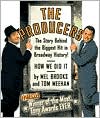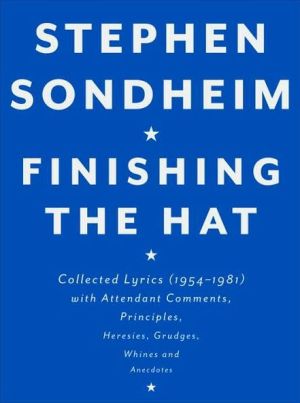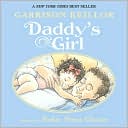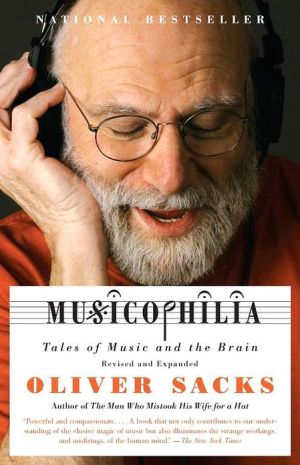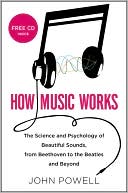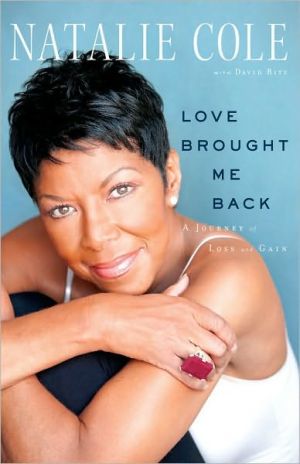The Producers: The Story Behind the Biggest Hit in Broadway History!
This is the laugh-out-loud story of two scheming men, Bialystock, a shady producer, and Bloom, his nervous accomplice. Together they come up with the ultimate con: raise more money than needed, produce a show that is bound to flop, and pocket the change. Of course, all best laid plans are subject to be mucked up.
Search in google:
Mel Brooks once again delights audiences with his ingenious, infectiously, irreverent humor, knocking 'em dead on Broadway with the hottest ticket in town, The Producers. Brooks's raucous musical comedy, with the impossibly charismatic duo Max Bialystock (Nathan Lane) and Leo Bloom (Matthew Broderick) as the wily producers who cook the books and conspire to produce the worst musical ever, has won an unprecedented twelve Tony Awards (including best musical, best direction, best actor, and best original score for Brooks) and has been hailed "a gift from the show-biz gods" (Time magazine). This is the definitive account of a once-in-a-lifetime show. With characteristic candor, Mel Brooks and co-librettist Tom Meehan give an intimate glimpse of the musical Brooks calls his "love letter to Broadway." They explain the process of turning an idea into a show and detail how the creative team, which includes director/choreographer Susan Stroman and musical arranger Glen Kelly, has made The Producers into a smash hit. This lavishly illustrated book presents the libretto of the musical, in addition to such treats as annotated excerpts and never-before-seen outtakes. It contains Brooks's Tony Award-winning original songs, plus a hilarious send-up of Oklahoma! that never made it to the stage, entitled Hey, Nebraska! This book is a thrilling collection of brilliant costume and set illustrations, gorgeous photographs of scenes from the production and rehearsals, and personal photographs and anecdotes from the cast and crew. The Producers: The Book, Lyrics, and Story behind the Biggest Hit in Broadway History! pays tribute to the genius of the show, capturing permanently the magic and wild hilarity of this Broadway phenomenon. About the Authors: Director, producer, writer, and actor Mel Brooks is the creator of such comedy classics as Blazing Saddles, Young Frankenstein, High Anxiety, and Silent Movie. Winner of an Academy Award for The Producers screenplay, Brooks won three of the twelve Tonys awarded to the record-breaking musical. Brooks is one of a few in the pantheon of entertainers to win an award grand slam: two Oscars, a Grammy, three Tonys, and four Emmys. Thomas Meehan won his first Tony in 1977 for writing Annie and his second in 2001 for co-writing the book of The Producers with Mel Brooks. He is a long-time contributor to the New Yorker and an Emmy Award-winning television writer, and he has collaborated on a number of screenplays.
NERVOUS SUNDAY: APRIL 9, 2000 by Thomas Meehan \ We are pacing anxiously back and forth, Mel Brooks and I, one jittery Jew and one jumpy Irishman, looking like a pair of expectant fathers in a maternity-ward waiting room. Which, in a sense, we are. For our bouncing baby, also known as our musical adaptation of Mel's cult-classic 1968 film comedy, The Producers, is about to be presented for the first time ever in front of a real, live audience.\ A baby is easy; it only takes nine months. But I've already been working with Mel Brooks on the book of The Producers for nearly two years, while he's been at it, writing the words and music for songs, for almost two and a half. We've spent countless hours working -- at Mel's office and home in Los Angeles as well as in New York, theatrical offices, apartments, and restaurants like Madame Romaine de Lyon (over omelets at a back table) and the Three Guys luncheonette (over tuna fish on rye toast with a slice of tomato, no lettuce, in the front booth, where one of the Three Guys often yelled at us, "C'mon, fellas, you been here over two hours, we need our booth back") -- turning the movie into a musical.\ The performance we're about to see, a so-called reading, is to be done by a company of a dozen highly accomplished Broadway actors led by Nathan Lane, the Tony Award-winning musical comedy star, who has graciously agreed, along with the others, to do our reading for the princely sum of $0.00. We are worried that, among others, Nathan won't like the show. He is our first and only choice to play the leading role in the musical, the part of the down-on-his-luck Broadway producer Max Bialystock, portrayed so memorably in the film by Zero Mostel.\ Furthermore, heightening our anxiety up to somewhere around total panic, Nathan and the others are going to be doing the show for what we figure is probably the world's toughest audience -- a pitiless, poker-faced gathering of approximately fifty of Broadway's most prominent theater owners, producers, and deep-pocket investors.\ It is nearly noon on a chilly, overcast, midtown Manhattan Sunday morning in early April. From the eleventh-floor window of the Nola Rehearsal Studio, a famed if somewhat dingy and beat-up suite of rehearsal rooms in a nondescript office building on West 54th Street, we look out to see that, even though it is spring, heavy, fat snowflakes have begun to fall on the bleak city. We overhear a couple of burly workmen pushing a baby-grand piano into our rehearsal room, Studio A. "Uh-oh, snow in April," one of them says to the other. "Not a good omen."\ Now the members of our audience begin arriving, shivering, briskly brushing snow from their coats, and looking not in the least pleased to have been dragged out into a blizzard, on a Sunday of all days, to go through the polite ritual of sitting through a reading of a new musical -- something they've probably had to endure at least twenty times this season. Mel and I greet each of the arrivals with cheery hellos and our most ingratiating smiles but get little in return.\ Thank God, there are a few sympathetic faces in the gathering crowd, like Mel's lawyer, Alan U. Schwartz; Mel's friends Bob and Laura Sillerman; Mel's cousin, Howard Kaminsky, a leading editor who is well known in New York book-publishing circles; and especially our wives, Mrs. Thomas Meehan, a.k.a. Carolyn Capstick, the spirited and forever-smiling blonde Greenwich Village entrepreneur, and Mrs. Mel Brooks, a.k.a. Anne Bancroft, the celebrated Tony and Academy Award-winning stage and film actress. They couldn't be cheerier or more supportive, although Anne quickly alerts us, "I've resolved not to be a shill for you guys and laugh my head off so that these producers will think it's good and want to put it on Broadway. I'm sorry, but I'm that kind of person. So if you notice that I'm not laughing, that's why. Although I'm sure it's going to be very funny." "Okay, I resolve not to laugh, either," adds Carolyn. We warmly thank them for their resolve.\ High noon. Mel and I step outside as the audience takes its place in the cramped rehearsal hall. They settle into three rows of fifteen or so metal folding chairs per row facing a dozen music stands, behind each of which is a stool that a cast member is about to perch on while reading from the script and singing. Nothing has been memorized -- the actors, recruited by Broadway's leading casting agency, Johnson-Liff Associates, have had only a few days to learn the songs and to do a couple of quick cold readings of the book. No scenery, no props, no costumes, no lights. No hope? We hope not.\ Led by Nathan Lane, the cast enters Studio A, and the door is closed. The reading is about to begin. "What have we got to be worried about?" we say, shake hands, and start to enter. But then we stop and stare at one another. What have we got to be worried about? Plenty! We've taken The Producers, for which Mel won the Academy Award in 1968 for Best Original Screenplay, and changed it from start to finish. We've put in a new beginning and a new ending; we've cut entire scenes and lines that devoted fans of the film have been laughing at for over thirty years; and we've even had the nerve to write brand-new scenes that hadn't been in the movie, along with scores of brand-new lines. Moreover, as the lyricist and composer of the show's score, Mel has stuck no fewer than sixteen brand-new songs into The Producers, to go with the two he'd already written for the movie, "Springtime for Hitler" and "Prisoners of Love." What a monumental display of unabashed chutzpah! We know that God and The New York Times will surely punish us for our transgressions.\ Our sweet-tempered and tireless young stage manager, Elaine Baylis, sticks her head out the door and informs us that everyone is waiting for us. We have to face the music. Literally. We slink into the room and take a couple of seats in the back row at the far end, next to the piano, at which sits our resident-genius musical supervisor, Glen Kelly, a boyish-looking redhead in his early thirties who has a fixed smile on his face, betraying a high degree of high anxiety.\ On the other side of the piano stands someone who doesn't seem to be nervous at all: our bright-eyed and beautiful director/choreographer, Susan Stroman, chipper and upbeat, as always, dressed in her trademark black pants and jacket, topped inevitably by a black baseball cap, out of the back of which sticks a perky blonde ponytail. Stro, as she is known to one and all, is even happily grinning as she steps forward to introduce the cast to the audience and to explain to them that they are about to hear the world-premiere reading of the musical version of The Producers. We're hoping to go to Broadway and are looking for only three things: a producer, a theater, and $10 million. "Smile, laugh if you want to, and have a good time," says Stro cheerfully.\ The music begins. Mel and I wink at each other in terror. Now, as the music modulates quietly, our narrator, Conrad John Schuck -- a friend and veteran stage, film, and TV actor-sets the scene. "Shubert Alley," he reads, "on an early spring night in 1959. The audience is coming out of the Shubert Theatre after seeing the opening-night performance of Max Bialystock's latest show, Funny Boy, a new musical version of Hamlet." Laughter. Not loud laughter. But definitely a little bit of laughter. Mel shrugs, I shrug. It means nothing. Our chorus of four men and four women belts out "Opening Night," a bright, upbeat curtain-raiser about how much they hated Funny Boy and have nothing but contempt for its producer, Max Bialystock. The number gets a couple of little laughs and polite applause. Anyway, nobody gets up and walks out.\ Now, all eyes turn to Nathan Lane, as Max Bialystock entering Shubert Alley in the midst of reading The New York Times on the subject of Funny Boy. Here we go. Baby's first jokes. "The reviews come out a lot faster," says Nathan, "when the critics leave at intermission." And, "By the end of Funny Boy, Max Bialystock's hopeless musical of Hamlet, everybody is dead. They were the lucky ones." Laughter. Real laughter. Loud laughter. Everyone in the room is laughing, led by Anne Bancroft and Carolyn Capstick. So much for resolve. Next, Nathan launches into his opening number, "The King of Broadway," a mournful Russian-Jewish Gypsy-style lament that gradually picks up speed and finally comes to a lunatic, up-tempo, Danny Kaye-like finish, a cascading tongue twister of nearly a dozen classic Mel Brooks lines that each rhymes with "nights again" -- "lights again," "brights again," "kites again," "slights again," "delights again," "plights again," "blights again," "frights again," "sights again," "flights again," and "heights again." When Nathan breathlessly finishes the number, Studio A breaks out in a storm of cheers and applause. Nathan has stopped the show three minutes after it has started. Mel leans over to me and, quoting Gene Wilder in Young Frankenstein, whispers, "It . . . could . . . work."\ The reading continues. And so does the laughter at virtually every joke in the script -- laughs at old lines from the movie as well as at new ones. Next, about half an hour into the reading, Gary Beach -- as Broadway's worst director, the effetely flamboyant Roger De Bris -- comes onto the scene, and the reading is once again stopped cold when he leads our male chorus in "Keep It Gay," a tongue-in-cheek celebration of the gay life that both Mel and I had feared might get rocks thrown at us by audiences but is instead happily embraced and greeted by roars of laughter. And only moments later, the reading is stopped cold for a third time by the very tall, very blonde, and very gorgeous Cady Huffman, as the Swedish bombshell Ulla, when she belts out "When You Got It, Flaunt It!" As the applause for Cady goes on and on, Mel's cousin, Howard, steps over and whispers in his ear. "First thing tomorrow morning," he says, "I'm going to Abercrombie & Fitch and buy a pick-ax, pitons, and a thousand feet of very strong rope." Mel looks at him, puzzled. "What for?" Howard replies with a big grin, "I'm going to climb Cady Huffman."\ End of Act One. Intermission. Mel and I are standing next to one another in a corner by the piano, bewildered and slightly shell-shocked, when a ruddy-faced, broadly smiling gentleman pushes his way through the crowd to us. He is none other than Rocco Landesman, debonair bon vivant and theater highbrow who'd once taught at the Yale School of Drama, legendarily successful horse-racing devotee, and, most significant, president since 1987 of the Jujamcyn Theatre Group, the owner of several of Broadway's most prestigious theaters. "I love it, absolutely love it," says Rocco, enthusiastically over-the-top. "If you want the St. James, you can have the St. James!"\ The St. James? One of the three or four most sought-after musical theaters in all of New York. Shows have waited for years to get a chance to play the St. James. Oklahoma! had opened at the St. James, and so had The King and I and Hello, Dolly! The St. James is a landmark, a legend. And now, at the intermission of our very first reading, we've been offered the St. James? This is fictional, something that happens in movies, not in real life.\ The reading of Act Two, featuring Gary Beach leading "Springtime for Hitler," amazingly goes even better than Act One. Either these people are dumb or we've seriously underestimated our show. And they don't look dumb. As the last of the audience is filing noisily and happily out of Studio A, Mel and I stand side by side with foolish grins on our faces, accepting congratulations from a very happy Glen Kelly and an even happier Susan Stroman. "Guys," she says, giving each of us a big hug, "I think you've got yourselves a musical." And Gary Beach, as he is leaving, cries out to us, "Mel, Tom, it's a hit! You've got yourselves a great big hit!"\ A hit? We've got ourselves a hit? Mel and I are walking on air, but a few minutes later we quickly come crashing back down to earth again. A hit? Are we crazy? We've heard the show read once for a relative handful of Broadway insiders who admittedly seemed to love it. But that scarcely makes it a hit. "Never go by audiences that include family and friends, especially audiences that haven't paid to get in -- that's one of the cardinal rules of the theater," I tell Mel.\ Furthermore, despite all the laughter, we saw that the second half of Act Two -- especially the scenes immediately following "Springtime for Hitler" -- was far too long and needed to be seriously cut. Also, are we out of our minds? We're hoping to sign up a cast led by Nathan Lane, one of the most brilliantly talented actors and singers in the history of American musical comedy, and where will he be during "Springtime for Hitler," the show's biggest production number? Backstage playing pinochle with a bunch of stagehands, because he isn't in "Springtime for Hitler"! We have to write a great, old-fashioned, knock-'em-in-the-aisles, stop-the-show eleven-o'clock number for Nathan sometime late in Act Two. We? I at once hand that little task over to our composer/lyricist, Mel Brooks.\ And all those producers and moneymen who laughed all afternoon long. "Are we kidding ourselves?" I say. "We'll probably never hear from any of them ever again." "You're right," agrees Mel. What have we got to worry about? Plenty! We look out the window. The snow has stopped, and the sun has come brilliantly out in a cloudless azure sky. Mel shrugs, I shrug. A gorgeous sunshiny afternoon to top off our world-premiere Sunday. Could that mean anything? The same two burly workmen pass by, wheeling our piano out of Studio A. "Uh-oh, sunshine after snowfall in April," says one of them to the other. "Not a good omen."\ Uh-oh. Maybe we shouldn't have written this musical in the first place. A fine Laurel-and-Hardy mess we've gotten ourselves into! How did it all happen, Mel, how?
\ From Barnes & NobleIf you haven't seen the award-winning Broadway hit The Producers, this illustrated coffee table book is the next-best thing. Packed with photographs of cast members both onstage and off, intimate anecdotes from stars Nathan Lane, Matthew Broderick, and Cady Huffman, and hilarious essays by Mel Brooks and co-librettist Thomas Meehan, this definitive guide to The Producers will have theater buffs rolling in the aisles.\ \
